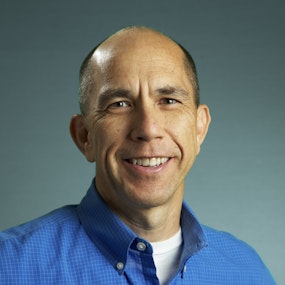
Keith Fong
Quality Warrior / Problem Solving Teacher & Coach
Since I was a child, I have been drawn to design and system optimization. Of course, I didn't have language to express that when I was a child. I loved airplanes so I read books and built models and imagined how I would design them and the design choices and tradeoffs I might make.
When I went to college, I earned bachelors degrees in Mechanical Engineering and Metallurgical Engineering aspiring to work in the aerospace industry. However, I got a co-op job with the Saginaw Division of General Motors Corporation. I was exposed to manufacturing, competitive analysis, vehicle testing, product design, and advanced development in an environment that gave students real engineering practice. And I discovered how competitive and advanced the industry was. I loved it.
I went to grad school to earn my Masters Degree in Mechanical Engineering with the idea that I would continue on to earn a PhD and become a college professor. I very quickly realized that academia was not for me. Academia is competitive, but not in a way that appealed to me. I wanted to be in the cleansing fire of a competitive marketplace where people vote with their pocketbooks.
Graduate school actually was my first experience with continuous improvement tools. My thesis advisor was an empiricist and proposed studying a lot of factors in ceramics processing. Using traditional one factor at a time practices, it would take several years to complete the research and graduate.
I had heard of Design of Experiments and proposed that to my advisor. He wasn't familiar with it, either, but he encouraged me to try it. I ended up applying Taguchi Method DOE and it was a revelation to me. It revealed that a single processing factor could drive attaining the theoretical limit of the process—a factor that was not in any of the literature. Since I was self-taught, I actually didn't perform the DOE entirely consistent with the Taguchi Method, but it still worked.
My first post-school job was to design waste gas flare systems for refineries, chemical plants, petroleum production, and landfills. My employer was the dominant player in the market and the customers wanted demonstrated reliability. I enjoyed learning the design process and the product. As the junior design engineer, I got all of the little orders which meant I had most of the orders.
I hate rework and with so many orders, I had plenty of opportunities to see rework. I identified the causes of the rework and changed my processes to eliminate the rework causes. One common source of rework was the expectation that the drafting organization could read the design engineers' minds. Improving the clarity and completeness of my design documentation was probably the most important improvement. It certainly made work go much more smoothly.
I got an opportunity to return to the automotive industry. Delphi Automotive Systems was formed from the parts divisions of General Motors and they were opening a technical center in Ciudad Juarez, Chihuahua, Mexico just across the US-Mexico border from El Paso, TX. I became responsible for the design of anti-lock brake system solenoid valves. Our team was very young and we faced a lot of growing pains. I loved returning to a competitive market and working in Mexico.
Designing the ABS solenoid valves proved to be technically interesting, especially trying to optimize for the performance, packaging, durability, and cost constraints imposed by the market. At the time, ABS unit prices were decreasing 20% per year and performance was improving. Reducing cost while increasing performance is a great environment for applying quality and continuous improvement methods.
Eventually, the urge that made me want to be a college professor returned. While I enjoyed doing product design and leading a product design team, I wanted to teach and learn about more things. Delphi had a team of internal consultants called Innovation & Continuous Improvement Methodologies. I joined that team in 2001 even though I didn't have any certifications.
It proved to be quite a journey. I was on the team for almost 20 years until I left Delphi. I attained Six Sigma Master Black Belt, Shainin Red X, and Robust Engineering coach certifications. I got to work with almost every function in the enterprise, in many different product lines, at engineering and manufacturing locations across the world. I learned a lot about what did and did not work with the deployment of quality and continuous improvement methods. These lessons are what I try to share in the "Way of the Quality Warrior" podcast.